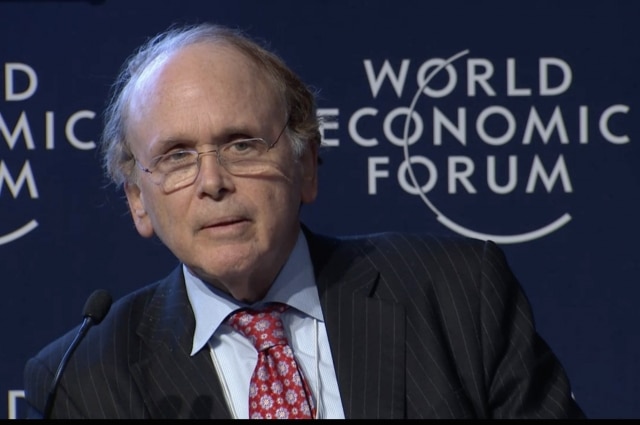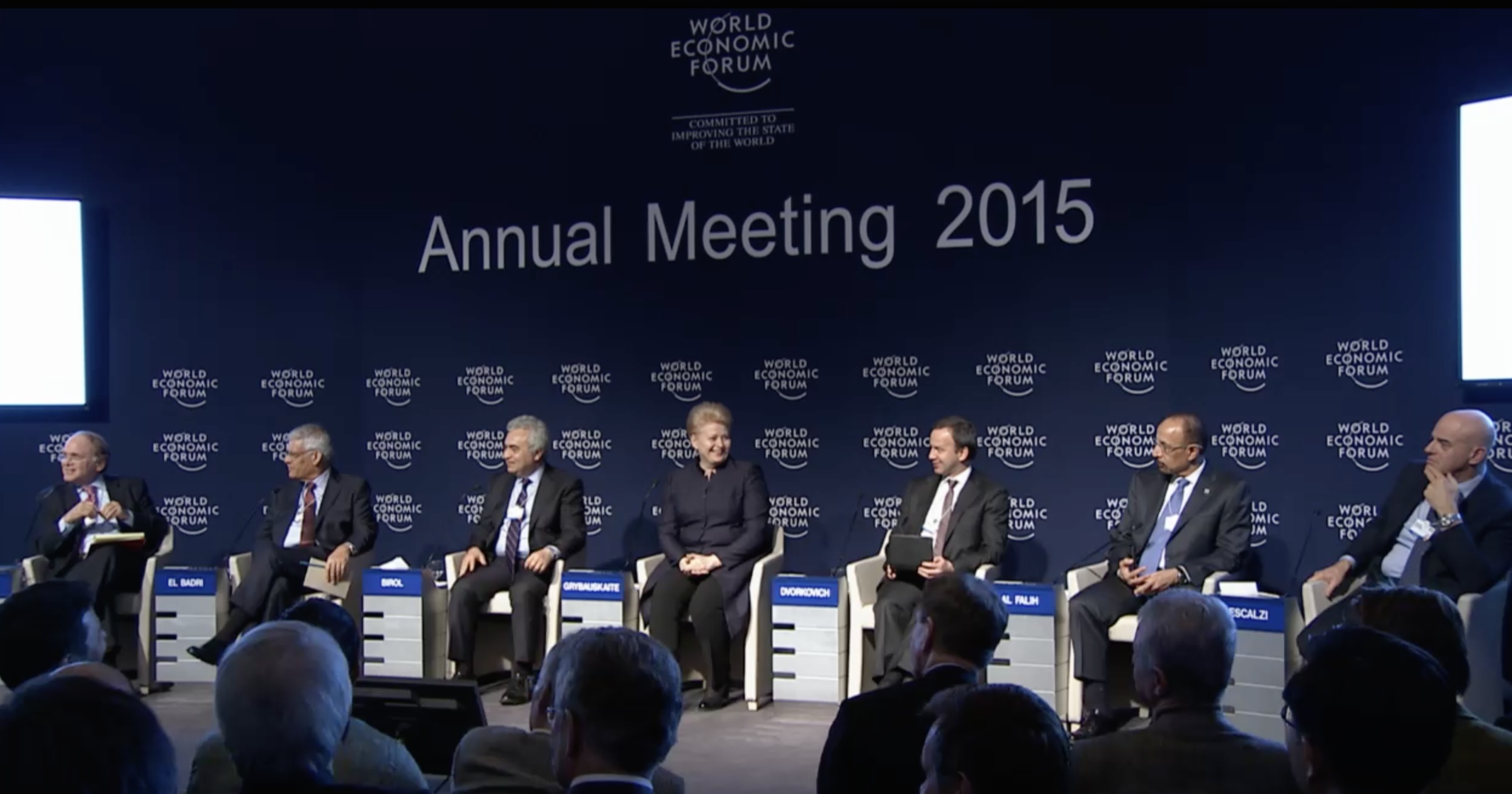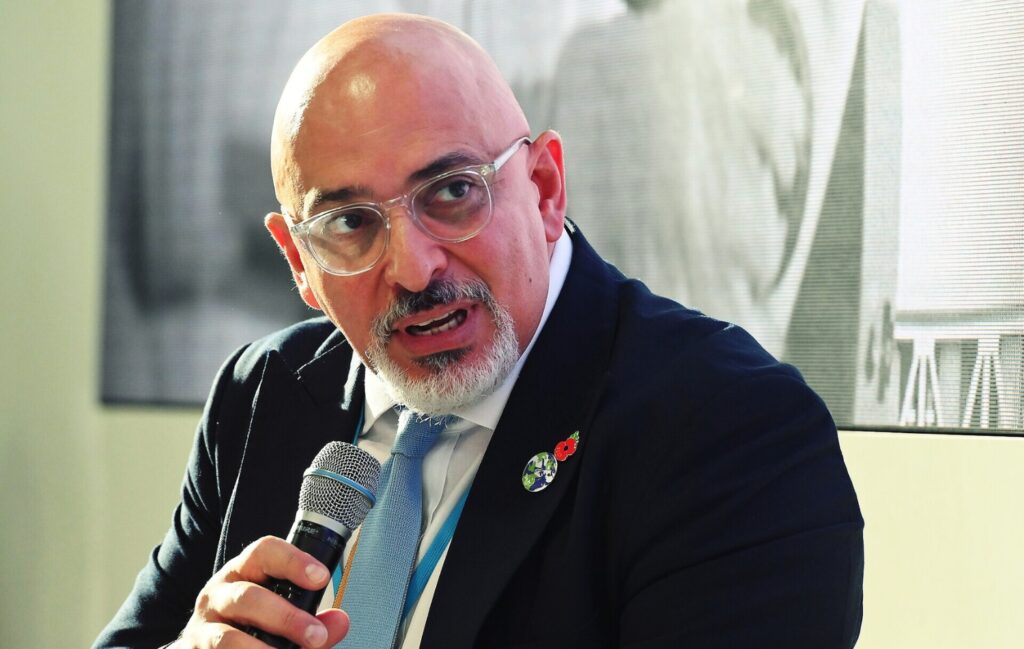“This is a historic turning point,” said Daniel Yergin. “The defining force now in world oil today is the growth of U.S. production.”
That quote is from an article from November 2014 in the New York Times, which described Daniel Yergin as an “energy historian.” As the Pulitzer Prize winning author of The Prize, which BusinessWeek called “the best history of oil ever written,” it is a technically accurate but largely incomplete description of Yergin.
While Yergin has written about the history of oil and power, he is now also a major player in the game and is using this power to help shape history rather than just report on it. And, of course, to personally profit from these efforts.
In 2011, TIME magazine named Yergin one of their “People Who Mattered” stating, “If there’s one man whose opinion matters more than any other on global energy markets, it’s Daniel Yergin.” That’s a rather powerful position when you are discussing a market worth $5-6 trillion a year. TIME does mention one of Yergin’s other jobs in their article, a job that helps him get some of his cut of that $6 trillion — and it isn’t coming from book sales.
Daniel Yergin is vice chairman of IHS, a leading energy consulting firm that describes itself as “the premier provider of global market, industry and technical expertise.” This description is right next to a photo of an offshore oil drilling platform, in case you were unsure what IHS means by industry. Yergin has over $10 million of stock options in IHS.
Additionally, something not found on Yergin’s bio on his personal site or at IHS is that Yergin is listed as a Managing Director for Riverstone, LLC. Riverstone is one of the largest private equity firms in the energy business and currently manages over $27 billion in investments in virtually all aspects of the oil and gas industry. If the oil export ban is lifted and fracking is expanded in the U.S., Riverstone and Yergin will profit.
Riverstone has a long history of partnering with the Carlyle Group, an investment firm known for employing the first President George Bush, investments by Saudi’s including the Bin Laden family, and who none other than The Economist said, “gives capitalism a bad name.”
Yergin is also listed as a Senior Advisor to Energy Capital Partners, a firm that claims to manage $13 billion in energy investments.
While Daniel Yergin technically is an oil historian, he also most certainly is an oil and gas man, profiting from the oil and gas business.
So when he is quoted in the pages of the New York Times and other publications pushing hard to have the oil export ban lifted at this “historic turning point,” he is doing what is known in the investment industry as “talking his book.”
Yergin’s Influence in Industry and Government
Jack Gerard, president of the American Petroleum Institute, has also said that lifting the ban is a top priority of the oil industry. And IHS, with Yergin leading the effort, put out an industry-funded report last year supporting the lifting of the U.S. ban on crude oil exports.
Upon the release of the IHS report, which was funded by Chevron, ConocoPhillips, ExxonMobil and other industry players, Yergin would call the oil export ban “a relic of an age long gone,” giving us all some historical perspective.
Yergin’s “relic” language has been widely adopted by the oil industry including a recent Op-Ed in the Wall Street Journal by CEO John Hess of the oil producer Hess Corporation, as well as an opinion piece in The Hill.
Yergin’s influence doesn’t end with his customers in the oil industry or friends in the media. In October of 2014, U.S. Secretary of Energy Dr. Ernest Moniz presented the first James R. Schlesinger Medal for Energy Security to Daniel Yergin, stating that Yergin “has made unique contributions to the energy sector debate. His singular influence over the discussion of energy – and public understanding of the history and future trends of energy is unmatched.”
When the Secretary of Energy says you have “singular influence over the discussion of energy” that is “unmatched” it is safe to say you have a big impact on energy policy.
The medal presentation in October wasn’t the first time that Moniz and Yergin shared a stage last year. Yergin, the chairman of the IHS CERAweek conference, a conference known as the Super Bowl of Energy, had Moniz join him on stage and Moniz delivered a keynote speech.
As chairman of the conference, Yergin also welcomed Alaska Sen. Lisa Murkowski as a speaker at CERAweek 2014, where she began her efforts to get the crude oil export ban lifted. At the time, Murkowski touted the upcoming wave of supportive reports she expected to come out in 2014, apparently aware that Yergin and IHS would issue a report later in the year that would support lifting the export ban.
Another speaker at Yergin’s 2014 CERAweek conference was Marianne Kah, chief economist for ConocoPhillips, the company that not only helped fund Yergin’s report but also is a top donor to Sen. Murkowski.
Intellectual Capture at the Center for Global Energy Policy
In the 150th anniversary issue of The Nation, Michael Massing notes that the issue of corporate influence in academia is resulting in “intellectual capture.” Yergin is playing a big role in this arena as well.
ConocoPhillip’s Marianne Kah and Yergin met up again in November 2014 at the Columbia University Energy Symposium in New York. Columbia is becoming a leader in influencing global energy policy after launching its Center on Global Energy Policy in April of 2013. Daniel Yergin is on the advisory board. He was also the keynote speaker at the event in November.
In Kah’s talk at the Columbia event, she argued for the lifting of the crude oil export ban. She referenced the IHS study supporting her argument several times. She didn’t mention her company had helped fund the study or that its lead author, Daniel Yergin, was also the keynote speaker that day.
When questioned about the environmental impacts of lifting the export ban, Kah deferred to the opinion of Larry Summers.
“I’d like to sort of paraphrase or quote from Larry Summers, the former treasury secretary and economic advisor to the Obama administration…what he said was he can think of no reason why environmental policy should distinguish between domestically produced crude that is either used domestically or exported. That doesn’t make any difference to greenhouse gas emissions.”
Larry Summers, whose quote on the jacket of Yergin’s latest book praises Yergin’s book The Prize as a “magisterial masterpiece,” has been working very hard for the past year to push the idea of lifting the oil export ban. Summers also is a CERAweek alum, something touted on the IHS website.
Yergin reciprocated Summers’ praise when he credited Summers for saving us all in a bizarre theoretical prediction of the economic future printed in the New York Times. Yergin wrote:
What finally did begin recovery was the appointment by the Group of 20 in 2023 of the Summers Commission, led by former U.S. Treasury Secretary Lawrence H. Summers, which helped soothe global acrimony and initiated the much-needed coordination of fiscal and monetary policies.
It is a tight knit group.
Moniz and Murkowski were back at CERAweek with Yergin again in April of this year where, once again, lifting the oil export ban and expanding fracking were hot topics.
In late January, Columbia’s Global Center for Energy Policy released a new study with very similar conclusions to the IHS study from 2014. The headlines in the media once again touted how lifting the U.S. export ban would be good for the U.S. consumer.
More recently Jason Bordoff, former Obama advisor and founding director of the Global Center for Energy Policy, was testifying at a congressional hearing arguing to lift the oil export ban.
There were no dissenting voices in the panel discussion at Columbia in January that coincided with the report’s release. All agreed that the export ban should be lifted.
Daniel Yergin: International Man of Oil
As Yergin has been so instrumental in pushing the idea of lifting the oil export ban and the new report and subsequent panel discussion were the work of the Center for Energy Policy, which he is a part of, his absence was somewhat conspicuous. Where was he?
He was busy spreading the word in Davos at the World Economic Forum, where he led a panel on the state of the global oil and gas markets. A highlight for Yergin may have been when Khalid A. Al-Falih, the head of Saudi Aramco, the Saudi state-owned oil company, gave a shout out to Yergin and CERAweek saying, “in fact, Dan, if you remember in your own conference in 2013, CERAweek, which by the way is a great conference…”
While the U.S. media is busy pushing the idea that OPEC has declared war on U.S. oil producers and that lifting the oil export ban would be a way to fight back, Al-Falih noted during the panel that he believed in free markets and thought the export ban was a bad idea. He also is on record as saying “shale is not the enemy.”
The fact that the head of Saudi Aramco is championing the same cause as Yergin, Summers and the heads of ExxonMobil and ConocoPhillips isn’t that surprising when you realize that there is a Saudi oil company executive on the board of the American Petroleum Institute (API) and that the API gets funding from Saudi sources.
Perhaps the “American” Petroleum Institute needs to be rebranded?
So, apparently, Yergin is well-liked in all corners of the oil world. He is obviously well-liked by the Saudis. And in 2014, he also picked up the PetroTECH International Lifetime Achievement award that “salutes outstanding individuals who have made extraordinary contributions to the petroleum industry.” That award was presented to Yergin by the prime minster of India.
But the most interesting relationship of Yergin’s may be with Russia. As one of the leading proponents of selling the idea of “energy security” now that the industry has dropped the idea of “energy independence,” Yergin is pitching the idea that the U.S. needs to be able to use its oil and gas to counter Russia’s influence.
In a recent Wall Street Journal Op-Ed, none other than Stephen “Yellowcake” Hadley was making the case that the U.S. needs to export crude oil to counter the threat of Russia, saying that when it comes to energy security threats, the “most ominous is Russia’s energy stranglehold on Europe.”
As the first recipient of the James R. Schlesinger Medal for Energy Security you would think Daniel Yergin would share Hadley’s concerns about Russia. However, apparently the Russians value his advice as well. The Riverstone LLC bio for Yergin notes that he is a member of the Russian Academy of Oil and Gas, a point also made on his department of energy bio which states that he is the “only foreign member of the Russian Academy of Oil and Gas.”
Apparently Stephen Hadley is once again embellishing the truth about threats to America to further an agenda, or Yergin appears to be advising the very “enemy” he is telling us we all need to fight by lifting the crude oil export ban.
The Consummate Oil Man
One thing that is very clear is that Yergin is good at what he does. In his November keynote speech at Columbia he said that he wished the term “fracking” had never been invented. He prefers the term “well stimulation.” That’s a great example of the mind of a public relations professional at work, and also the words of someone who stands to continue to profit from the expansion of fracking.
On the very day that the Davos conference began, Riverstone announced a new investment in a company looking to produce tight oil in Canada. Tight oil is produced via fracking.
In another interview at Davos, when the interviewer refers to Canadian tar sands oil,Yergin quickly interjects and says, “oil sands,” the industry’s preferred language. Riverstone is invested in many aspects of the tar sands industry.
Yergin and the oil industry have been waging a long PR battle to try to get the U.S. crude export ban lifted. Their problem is that a recent poll shows that more than 70% of likely voters think that is a bad idea.
However, with the media’s continued portrayal of Yergin as a mere oil historian trying to help out the American people as just one part of a coordinated effort by the oil industry, those numbers are likely to change.
To sum up, a member of one of the largest private equity firms in the energy business is trying to sell the American people on the idea that the oil companies like ExxonMobil just want to lift the oil export ban because it would be good for the American people. And the U.S. media will happily play their role in this public relations con by selling Yergin as simply a well meaning “energy historian.”
Subscribe to our newsletter
Stay up to date with DeSmog news and alerts







